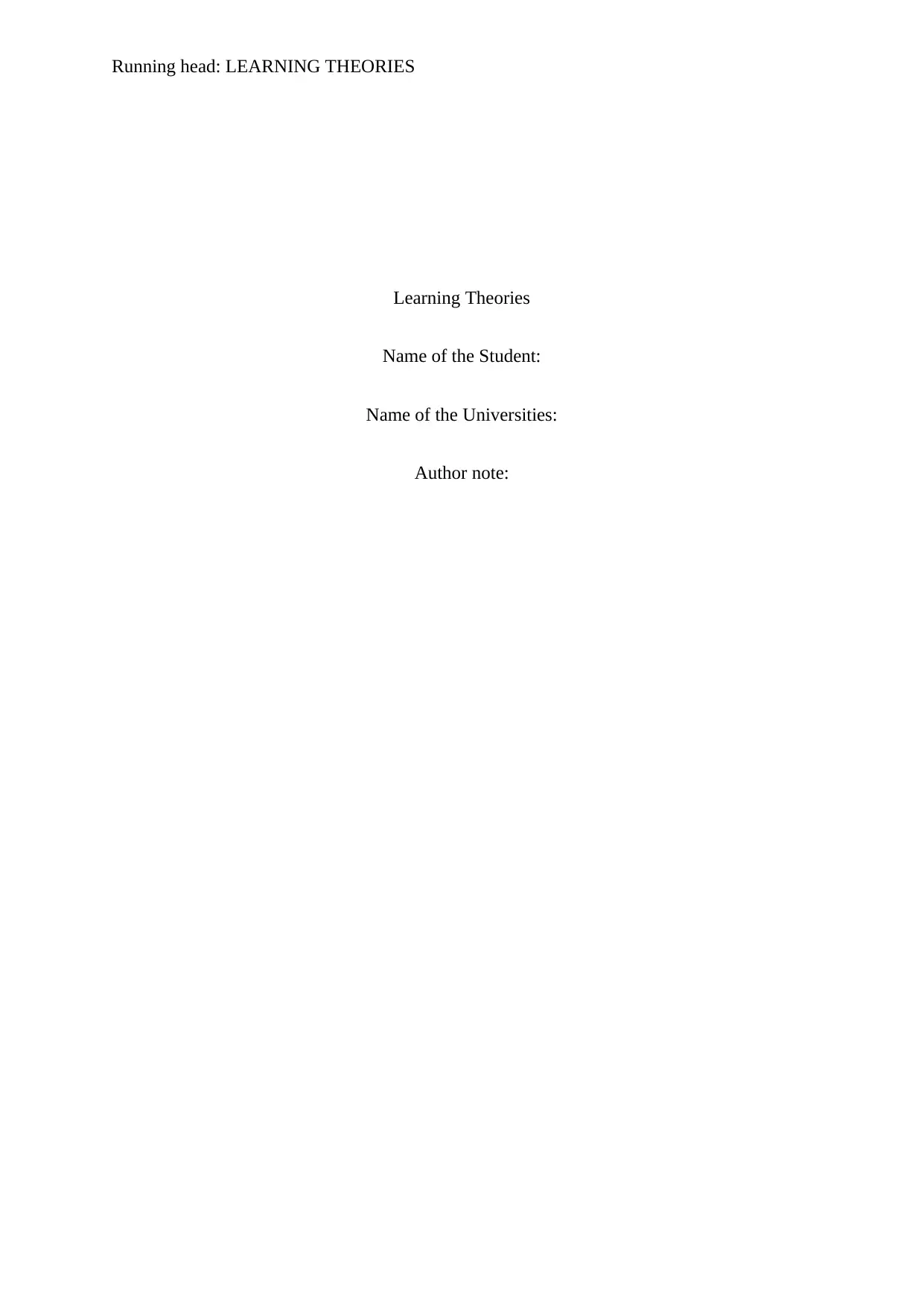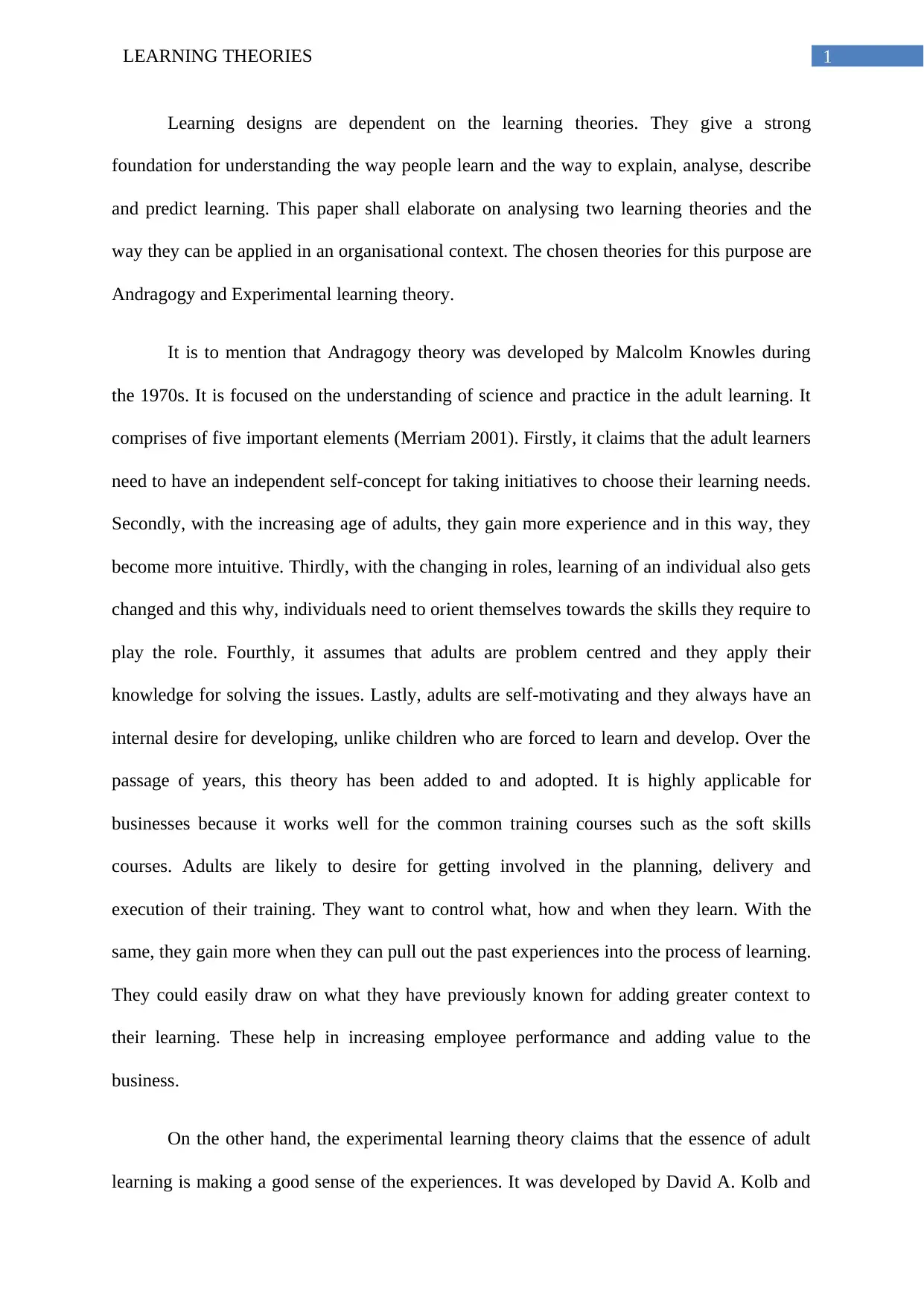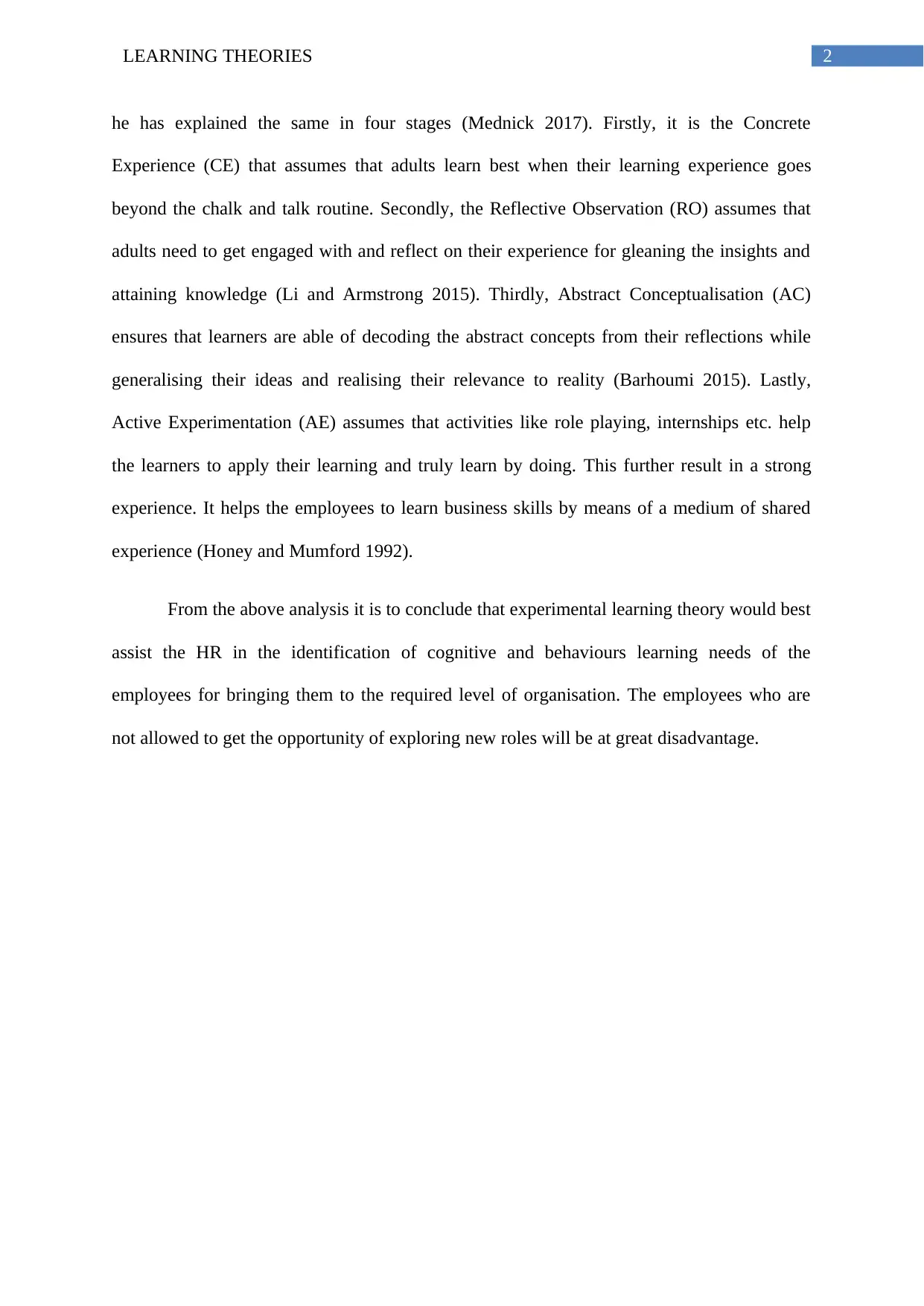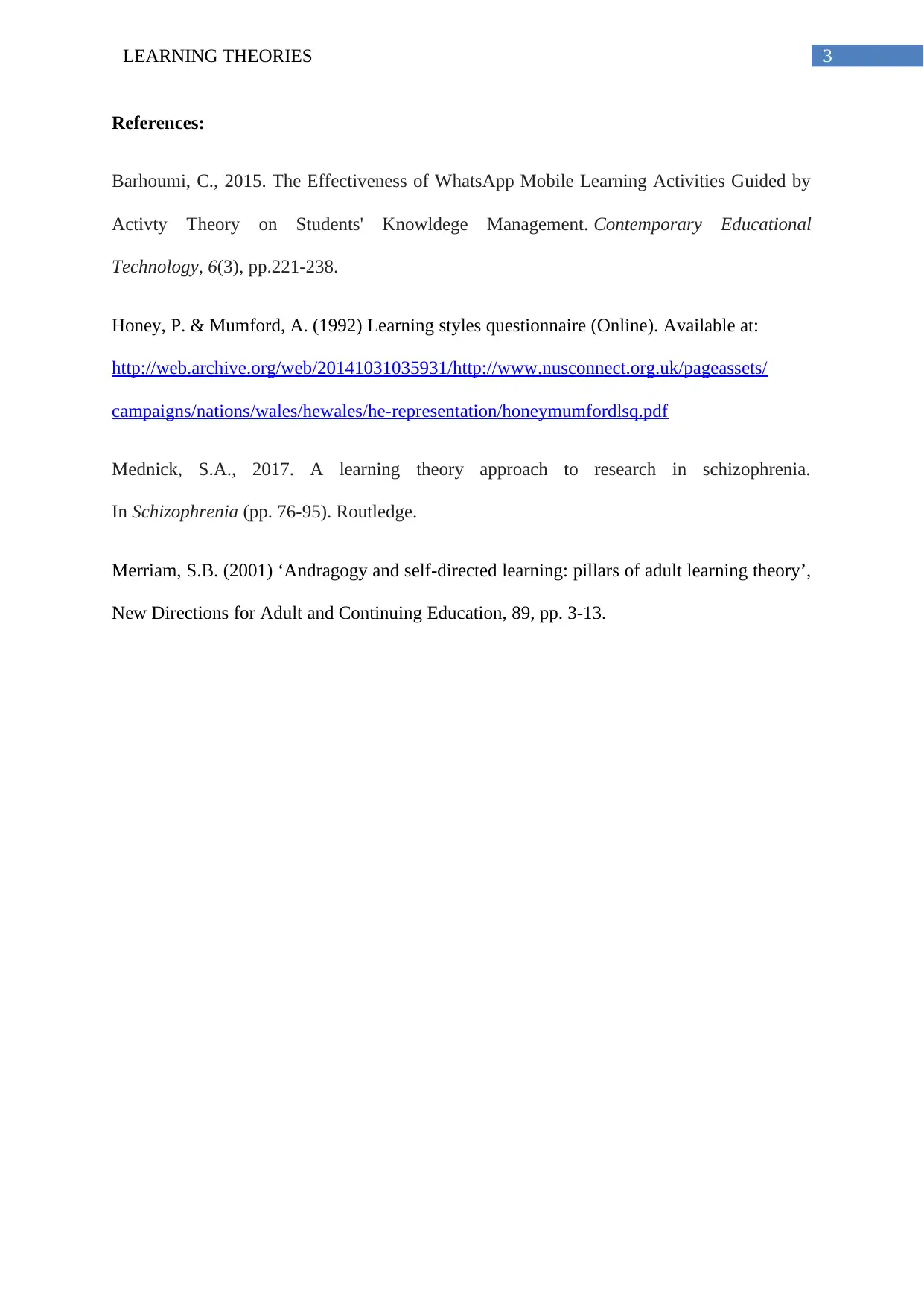Learning Theories: Analyzing Andragogy and Experimental Learning
VerifiedAdded on 2022/08/14
|4
|764
|17
Report
AI Summary
This report analyzes two prominent learning theories: Andragogy and Experimental Learning. It begins by defining Andragogy, developed by Malcolm Knowles, which emphasizes adult learners' self-direction, experience-based learning, and problem-centered approaches. The report highlights its application in business training, particularly for soft skills, where adults prefer control over their learning process. The second theory, Experimental Learning, developed by David A. Kolb, is then examined, detailing its four stages: Concrete Experience, Reflective Observation, Abstract Conceptualisation, and Active Experimentation. The report concludes that Experimental Learning Theory can effectively assist HR in identifying cognitive and behavioral learning needs, ultimately enhancing employee skills and organizational performance. The report references key academic sources to support its analysis.
1 out of 4











![[object Object]](/_next/static/media/star-bottom.7253800d.svg)